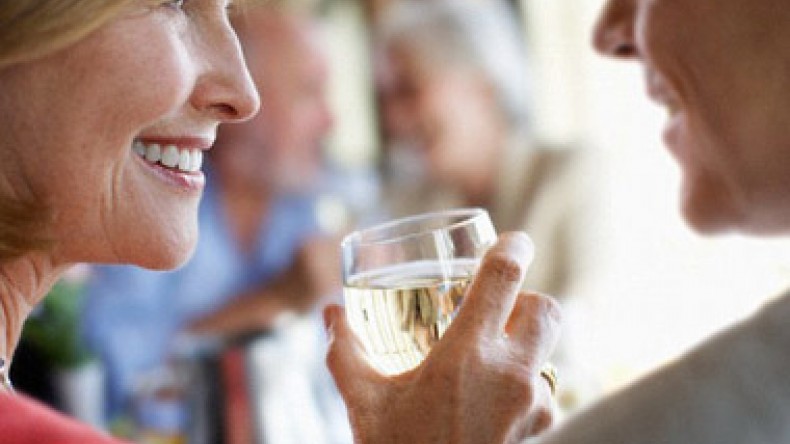
Wealthy, educated single men drink the most in later life, study finds
Middle-aged drinkers are lowering their alcohol consumption as a result of health fears, the Daily Mail reports, citing a new survey.
Researchers found a ‘marked decline’ in drinking with age, suggesting health warnings might finally be getting through.
They found that twice as many people had given up alcohol as a decade ago.
Older people with poor or deteriorating health had the steepest decline in the quantity and frequency of alcohol consumed.
It is thought opportunities for social drinking may be limited by poor health, while some heeded medical advice about alcohol consumption and interactions with medication.
The decade-long research project into the drinking habits of 4,500 people over the age of 45 also found older women reduced their drinking after the loss of a partner, contrary to previous findings.
Widows reduced their drinking levels by more than 16 per cent, while those in a partnership cut back around 11 per cent over the 10-year study period.
Poor health and lower levels of education resulted in lower levels of alcohol consumption – well below the threshold set for ‘safe’ drinking’.
Academics at Keele University and University College London who studied 4,500 men and women in England say life events tend to lead to a drop in alcohol consumption in older adults.
The exception was among wealthy, educated, single men who were most likely to drink more in later life and fail to cut down.
This is likely due to multiple opportunities to socialise, as part of a single life, and having more disposable income.
Those that used to or still smoke are most likely to drink more in later life.
Such men drank on average an equivalent of 24 small glasses of wine a week at the start of the study in 1998 and 2000.
This was in sharp contrast to single, retired men with poor health and no qualifications who drank on average an equivalent of five small glasses of wine a week at the start of the study.
Rich, older men carried on drinking at these levels, while on average men over 45 drank around 14 small glasses of wine a week.
Older women drank seven small glasses of red wine on average, says the study funded by the Economic and Social Research Council.
The lower limits for safe drinking are set at 21 units for men and 14 for women.
Just three per cent of older men and women were heavy drinkers – consuming more than 50 units a week for men and 35 units a week for women.
For women, the end of a partnership was linked with less drinking.
From the people studied, women who lost a partner reduced their drinking levels by more than 16 per cent at the end of the ten year study.
This was a bigger reduction than those in a partnership whose drinking fell by 11 per cent during the same period.
Middle aged people who had stopped drinking completely at the start of the study were more likely to experience an improvement in health compared to drinkers.
Professor Clare Holdsworth, professor of Social Geography at Keele University and lead researcher on the project, said ‘Over the Christmas period many people consume more alcohol.
‘Our findings suggest that the group most at risk of heavy drinking in later life are older single men with high levels of education and above average wealth.
‘Suggesting that health organisations target this group is not necessarily straightforward as these men might not identify their drinking as problem behaviour.
‘Also this group are less likely to have poor health in the short term, hence the need for intervention might not be apparent.’
She said the research challenged conclusions from smaller studies that a partnership ending led to alcohol misuse in later life.
‘In particular, our analysis of drinking behaviours demonstrates that change in partnership status for women is associated with a reduction in alcohol consumption.
‘As a result it is not necessarily appropriate to target alcohol services at this group of older people’ she added.
Newsfeed
Videos






























